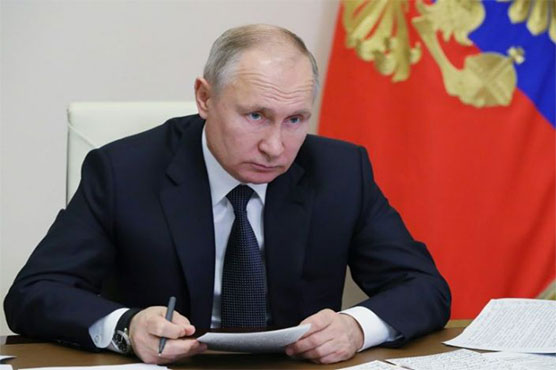US alarmed as Russia expands rules on 'foreign agents'

US voiced alarm after Russia expanded rules against NGOs and media considered "foreign agents".
WASHINGTON (AFP) - The United States on Thursday voiced alarm after Russia expanded rules against NGOs and media considered "foreign agents," accusing Moscow of stifling free expression.
"Deeply troubled by Russia s intensifying repression of its civil society," Cale Brown, the State Department s deputy spokesman, wrote on Twitter.
"Changes to the foreign agents law are particularly troubling, allowing authorities to selectively apply onerous registration and labeling requirements, veto an organization s activities, and imprison those found in violation," he wrote.
"We call on Russia to respect its citizens rights."
Russian President Vladimir Putin has broadened the labeling of non-governmental groups and media outlets as "foreign agents," a term that harks back to the Soviet era.
"Foreign agents" will now face up to five years in prison for failing to comply with rules under an expansion this month of legislation first passed in 2012.
Russia on Tuesday summoned representatives of media organizations listed as foreign agents, warning them to label publications with a tag and submit detailed paperwork or face fines.
Radio Free Europe/Radio Liberty, which is funded by the US Congress but is legally guaranteed editorial independence, said that three of its contributors were among the first individuals to be branded "foreign agents" under the measures.
Its vice president and editor in chief, Daisy Sindelar, called the singling out of professional journalists "reprehensible" and said they had reported responsibly on issues including local corruption and the impact of Covid-19.
"The Justice Ministry is stating unambiguously that reporting the facts is a crime, and that it will stop at nothing to silence the voices that seek to inform, protect and engage their compatriots, the people of Russia," Sindelar said, as quoted by the news outlet.
Russia began labeling media outlets after Kremlin-funded RT television registered as a foreign agent in the United States in 2017, under pressure following concerns of Moscow s influence in the election a year earlier.
Under the US regulations, RT is required to label material as coming from a foreign government and must report its dealings to authorities, but its coverage is not restricted.
Washington has since separately declared that Chinese state-funded outlets are parts of foreign missions.

